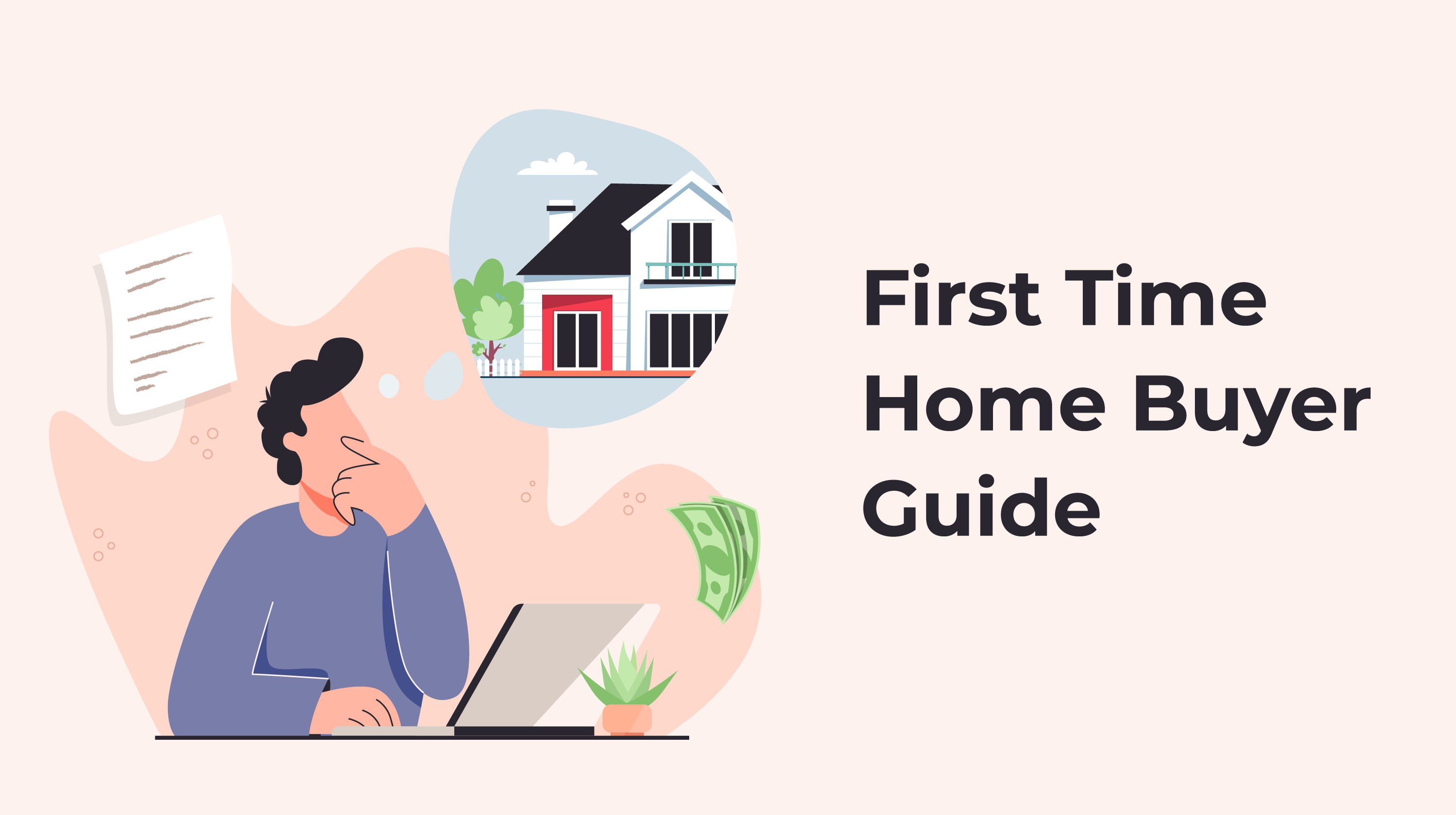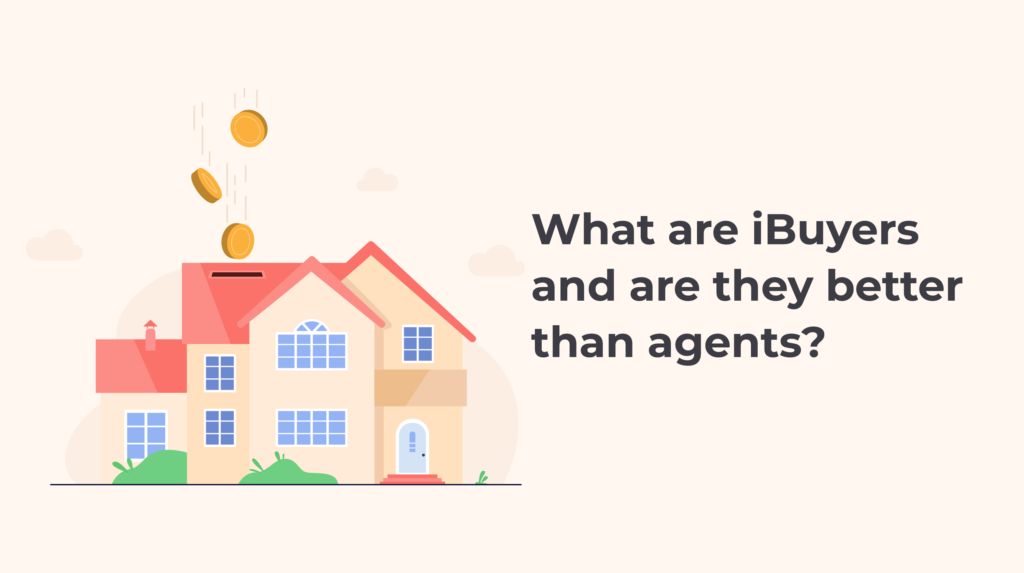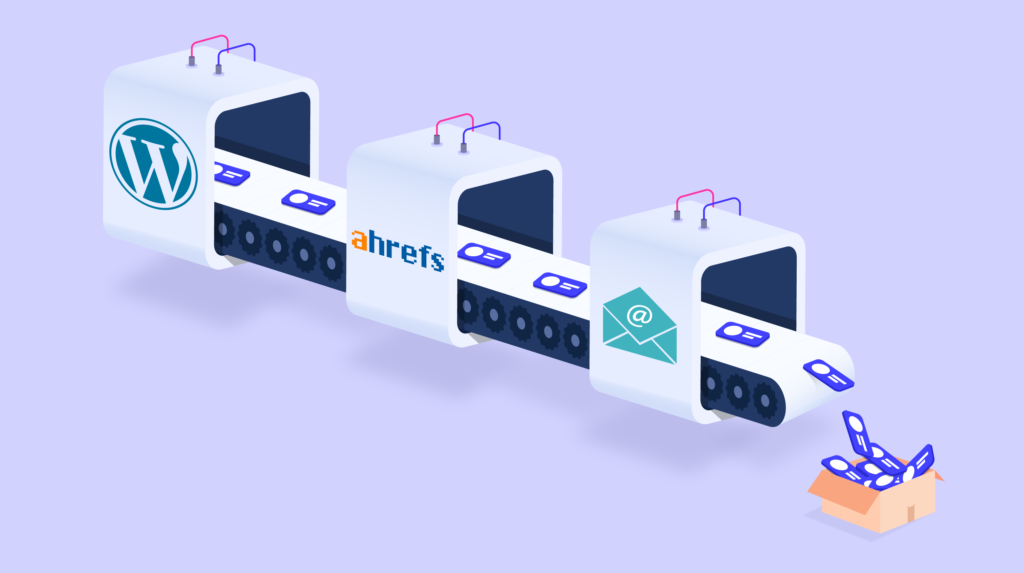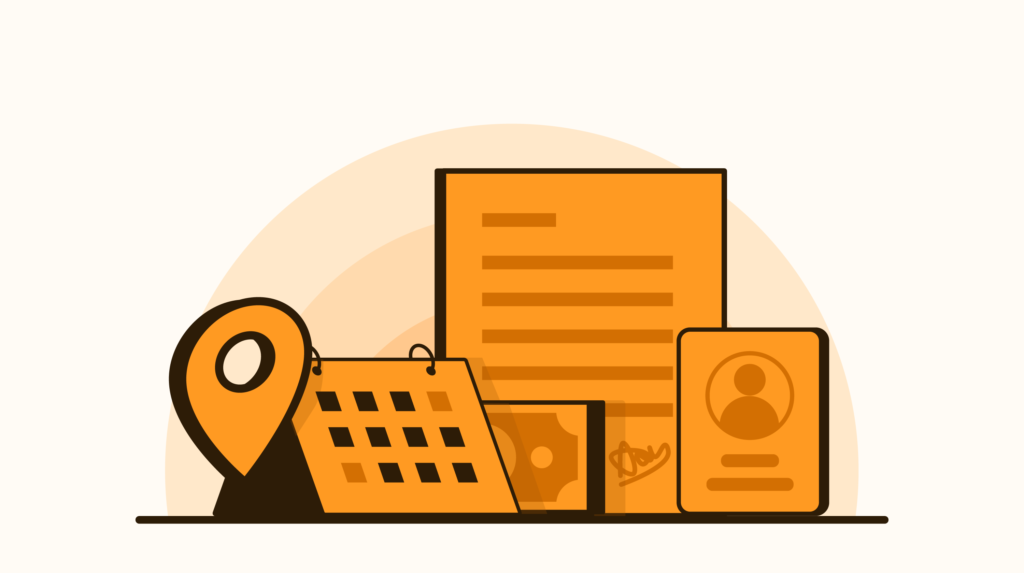
Are you a first time home buyer overwhelmed with all the details? Here's a guide for you to simplify and put things into perspective.
Buying the dream property for a first time home buyer is eventful but equally stressful. From balancing features and price to getting the credit score right, it needs a lot from the buyer to prepare and finally sign the deal. The buyer wants to be familiar with all the steps that they come across for the first time they hunt for a property. This is what we wish to accomplish here.
In this guide, we wish to put the home buying timeline into perspective in the simplest way possible. We will discuss everything that you will need to prepare before you even talk to a lender.
Table of Contents
The Prerequisites for a First Time Home Buyer
Getting Pre Approved for Mortgage
Applying for a Mortgage
First Time Homebuyer Loans and Programs
Hiring a Real Estate Agent
Finding the Right Home
The Closing Process
From pre approval to choosing the right mortgage product, hiring the right real estate agent, and saving on closing costs, this guide gives you a total of 7 steps that every buyer should go through to finally make up their mind and sign the deal.
So without further ado, let's get started.
The Prerequisites for a First Time Home Buyer
Buyers should consider these points before they go further into the buying process. This helps you streamline your efforts and avoid the unforeseen roadblocks that may come further into the process.
How much home can you afford?
Affordability is connected to the amount of mortgage you can afford, making it the number one prerequisite. Be honest about how much you can afford. You should also add the amount of taxes and maintenance into that monthly EMI and come to a final score.
Clear off your previous Debts
A desirable debt to income ratio (DTI) for mortgage approval is 36%. It means, if your monthly income is $5000, your total debt should go no more than $1,800 per month.
This is why if you are already paying EMIs, let’s say, for an expensive car, it will bite into your affordability, leaving you with a smaller mortgage amount per month.
Lenders take DTI seriously, for it affects the approval or rejection of safer mortgage options. A solid DTI is also good for your credit score.
Are you prepared to pay taxes and maintenance?
You should expect monthly maintenance charges and taxes once you own a property. The amount depends on the location, size, features, and many other factors of the property.
The Downpayment
Most mortgage products demand a 5%-20% down payment. It is always best to pay 10% and more as a down payment. The larger the down payment, the lesser the interest rate on the mortgage.
It is also best to stay away from mortgages with zero down payment or variable rates of interest. Additionally, it is always best to have a calendar sketched out with projected payments across the payback timeline.
Get Pre Qualified
Pre approval is a pivotal step towards buying your first home as it guarantees you a mortgage. Getting pre approved is mostly about collecting a list of documents for the lender and getting your credit score in place if required.
Have a list of favorite neighborhoods
Have a list of zipcodes for your real estate agent to easily gauge your lifestyle expectations. Preference of neighborhoods also helps you correct your course of the search when an agent comes into the picture.
Have a list of properties with desirable features
How many bedrooms and bathrooms would you want? Do you want a pool? If you already have answers to these questions, your home search becomes much easier and streamlined for your agent. It also allows you to mentally prepare to expand your budget if needed.
Anticipate closing costs
Closing Costs vary from one state to another. Buyers often pay for the lender's policy and some other costs as well. Your agent must make sure to get you the best deal with lesser closing costs. Many times, the lender may also suggest you a title company of their choice.
Now that we got the prerequisites out of the way. Let's get into the first step of the process.
Getting Pre Approved for Mortgage
Pre approval proves your creditworthiness and ability to pay the mortgage back. It won't be incorrect to say that it is a ticket towards your dream home.
Pre approval is important because it assures the seller about your financial commitment and capabilities. At the same time getting pre approved allows the buyer to handpick the best mortgage product that suits their needs.
In order to get the pre approval letter, you must do the following:
Fill out the mortgage application form 1003 (also called the Uniform Residential Loan Application)
Documentation to verify your income, assets, employment, and debts.
- Recent copies of Federal and State tax returns
- W2 forms and two recent paystubs
- Profit and Loss statement for independent contractors, freelancers
- document of rental income for people earning through real estate.
- 60 days of account Statement for accounts being used to apply for the mortgage
- Documents such as statements from IRA, Certificate of Deposit, statement of the last quarter from 401(k)s, etc.
- State creditors name and address of every creditor
- Submit utility bills or bills of regular payment
- Submit statements of any property that is paid by mortgage currently
- Divorce statement, rent receipts, and statement of downpayment
The pre approval letter remains valid for 90 days following the date of issue. Please note that getting pre approved is different from pre qualification as pre qualification only shows your mortgage affordability based on the information you provide to the lender.
Pre qualification is a prerequisite that allows you to learn about different types of mortgages available out there for you to create a mental picture about a feasible amount of loan, payback period, and interest rate. Pre approval, on the other hand, legally allows you to buy a mortgage.
Applying for a Mortgage
The application process for a mortgage loan technically starts with the pre approval process. Once, the pre approval process is complete, the lender is likely to suggest a list of mortgage products that suit your budget.
Besides choosing the mortgage, it is also important to lock your interest rate which is always changing and may mess up your projection on calculating an accurate monthy EMI.
Additionally, locking the interest rate assures your lender of your commitment to the mortgage and earns you discount points from the lender for doing so.
The rate must be locked prior to the lender preparing your closing documents. Talk to your lender about the choice that best suits your needs and your preferences.
First Time Homebuyer Loans and Programs
First time home buyers have a myriad of mortgage options to choose from. It is solely at the discretion of the lender to suggest loans that strike a balance between the rate of interest and your credit score.
The following table gives a perspective on the interest rates, down payment, and credit score needed for the most popular mortgage types.
Mortgage Type |
Down Payment |
Interest Rate(30 years fixed) |
FICO Score |
| Conventional Mortgage | 5% - 20% | 2.4% - 2.8% | 740+ |
| Federal Housing Authority (FHA) | 3.5% - 10% | 2.7% - 3.6% | 500 - 579 |
| U.S. Department of Agriculture mortgage program (USDA) | 0% | 3.25% - 3.5% | 640+ |
| Veterans Affairs (VA) | 0% | 2.5% - 2.9% | 580 - 620 |
| Good Neighbor Next Door (GNND) | $100 | - | 580+(100% financing)
500 - 579 (90% financing) |
Let’s look into them in more detail.
Conventional Mortgage
These mortgages are called conventional in the sense that they are not backed or secured by a government entity. Buyers tend to go for a conventional mortgage for their low rate of interest. In fact, Conventional mortgages are cheaper than VA loans most of the time. However, to apply for a conventional loan, a credit score of 740+ is necessary.
When should you go for a conventional mortgage?
You should go for a conventional mortgage when you want the lowest interest, have a FICO score of 740+, and ready to commit a 20% downpayment.
FHA Loans
FHA loans were created to make homes affordable for low income families in America. FHA loans are known for their lower down payment and FICO scores eligibility. You can go for a down payment as low as 3.5% and a minimum FICO score of 580. If your credit score ranges from 500-579, a down payment of 10% is a must.
However, please note that FHA loans with down payments of less than 20% come with mortgage insurance.
When should you go for FHA mortgages?
You should go for FHA loans when you do not have the best FICO score and cannot afford a downpayment of more than 10%.
U.S. Department of Agriculture Mortgage Program (USDA)
These mortgages were created to make homes affordable for people living in rural areas. USDA loans are applicable to areas that are categorized to be rural. However, a lot of suburban neighborhoods may also fall under this category.
USDA loans allow buyers a zero down payment option with a credit score of 640+.
When should you go for USDA mortgages?
You should seek a USDA loan when you want to buy a property in a neighborhood that qualifies for a USDA mortgage. Additionally, if you do not want to shell out any down payment, USDA loans could be a great choice.
However, make sure that your household income does not exceed $90,300 per annum for a 1-4 member household and $119,200 per annum for a 5-8 member household.
VA Loans
VA Loans are mortgage options provided to people serving in the military. VA loans are quite attractive for the fact that they allow veterans to apply with a FICO score as low as 580 with zero down payment. Additionally, the rate of interest on VA loans is 2.5% - 2.9%, which is one of the lowest.
When should you go for VA mortgages?
Some of the key criteria for a VA loan includes a minimum of
- 90 consecutive days of active service during wartime
- 181 days of service during peacetime
- 6 years of service in National Guard or Reserves
- Spouse of a service member who has died in the line of duty
Good Neighbour Next Door (GNND)
Good neighbor, next door program is a HUD backed housing program that aims to provide affordable housing to law enforcement officers, firefighters, emergency medical technicians, and teachers for pre-kindergarten through 12th grade.
The GNND program allows a flat 50% discount on the listed price of the property in revitalization zones.
When should you go for a Good Neighbor Next Door Mortgage?
If you are eligible by your profession and do not want to pay any down payment whatsoever, then the good neighbor next door program can be helpful. Make sure that you examine the neighborhood for the amenities, its proximity to the nearby town or city, and then make a decision.
Now that you have chosen the right mortgage option, it is time to search for some desirable properties. While you can do that yourself, it is advisable to get a real estate agent on board first.
Hiring a Real Estate Agent
Hiring a great real estate agent can speed up and streamline your search while saving you a significant amount of money on the purchase. The trick is to hire the right agent and the following steps can help you do that.
Use references to hire
The best suggestions about products and services always come from friends and family and the same applies to finding a great real estate agent as well. Ask them about the realtor’s promptness, degree of commitment to represent and bargain for the buyer’s side, and their organizational skills. A great real estate agent will take all the worries off the buyer’s head for a hassle free property searching experience.
Verify their License Number
Before you hire a real estate agent, make sure to verify their license. Each state has its own database that allows you to check the agent's license number online.
Interview the Agent
Realtors are often specialized for specific neighborhoods in a county. This is when your prerequisite checklist of tentative neighborhoods and property types comes in handy. Ask them about the number of homes they sold in those neighborhoods and their experience over the years. Generally, real estate agents with more than 5 years of experience are seasoned professionals who can be trusted with the job.
Ask the lender
Ask your lender to suggest a good real estate agent. Lenders work with a lot of real estate agents at any time and can easily suggest realtors who operate in specific neighborhoods and zip codes. The lender can really save your time by referring you to a qualified agent who can be very effective in finding the best properties.
Prefer realtors who are tech savvy
From our experience, we have seen tech savvy lenders are smart with higher problem solving abilities when it comes to serving their clients.
If you want a tech savvy realtor, enquire how they generate leads online, how do they reach their leads, and if they have a CRM or not? While this does not affect you directly, it tells you about their organizational skills and willingness to serve their clients better with all these tools.
Their Liaison with Title Companies
A realtor should be able to suggest you a reputed title company that is responsible to transfer the title from the seller to your name. Additionally, they should also provide you insights and help you save as much on the closing costs as possible.
Finding the Right Home
The next part of the process is finding the right home and to do that you would need to know about 4 things. These are choice of lifestyle, type of home, choice of neighborhood, and features.
Choice of Lifestyle
The first and foremost thing that should come to your mind is the type of lifestyle that you aspire. Are you a peace loving person who enjoys the calm suburb? Or, are you someone who wants to be in a neighborhood with a lot of action? You must have an answer to that question before you start your search.
Overall, there are three types of lifestyle when it comes to choosing your home. These are
Urban Living. Urban Living gives you the perks of fast living, frequent socializing, and availability to a myriad of services accessible within a couple of miles. On the downside, properties in urban areas are generally on the higher side of the price spectrum.
If you are living in a bustling city, a condominium could be a better alternative to a single family house because it will be cheaper and lead to fewer maintenance costs.
Suburban Living. This type of lifestyle is preferred by a majority of Americans as it strikes a balance between your budget and property features. Suburban homes are larger and often come with backyards and pools. Often, the nearby city or town is away by a few minutes of drive which allows you to enjoy the city life more often.
Additionally, single family homes in the suburbs are quite affordable, making them the first choice for many American families.
Country Living. The countryside offers the cheapest cost of living in the country. Countryside homes can cost you 12.5% less on average, making them very affordable. If you prefer a community driven lifestyle, prefer to go out for cycling and stargazing, countryside living is for you.
The Type of Home you Want
Your favorite home type will also influence your budget. For example, if you do not want to shell out some $200 on HOA fees, apartments and condos could be a better choice over independent single daily homes.
Every home type has its own set of advantages and disadvantages. it really comes down to your priorities to go for the one that fits meets your needs while fitting into the budget. Let’s look at the common house types and their pros and cons.
Single Family Homes. According to research from Zillow, more than 80% of buyers go for a single family home. Single family homes are popular as they blend affordability and independence together in a single package.
Compared to condos or townhomes, single family homes offer a lot of freedom. If you like to decorate your home during holidays or prefer some grass cover at the front of the house, a single family home will allow you to rejoice these everyday.
On the downside, single family homes have independent systems such as air conditioning, lawn care, and sewer systems that need regular checking and maintenance.
Townhouse and Condos. Townhouses and condos have shared walls between them. The systems for air conditioning, sewage, etc. are shared and are maintained by the condo or townhouse association. This is why a townhouse or a condo comes with an affordable maintenance bill.
On the downside, Townhouse and Condos have limited privacy. While Townhouses can have small yards and patios, condos generally do not have them. If you are a barbeque person who likes to party with close friends and family, then condos/townhomes are not the best options.
Multi Family Homes. Multi Family Homes are mostly duplexes or triplexes. Around 6% of the homes sold every year in the US are duplexes. Duplexes allow a large family to live under the same roof which accounts for a lower cost of living on average.
In addition to it, duplexes are relatively cheaper due to the fact they are located in the suburbs. A lot of duplex buyers rent out a part of the property that cuts down the mortgage by a large percentage.
On the downside, multi family homes come with a higher maintenance cost due to their size and built up area.
Neighborhood
A neighborhood's worth is decided by the schools it has, its safety record, and much more. Be sure of what you want from a neighborhood and then set the course for your search. Here is a list of things for you to consider.
Safety. A safe neighborhood always tops the list for home buyers. It is not for no reason that Trulia has a separate section for “safety and crime” for each listing hosted on their website. Look into the number of crimes and types of crimes to distinguish one neighborhood from another. You can take help from sites such as adt.com which gives you an itemized list of crimes according to the zip codes.
Schools. Schools are important to buyers and they often enquire about them. Both Zillow and Trulia feature a separate section to show the available schools in the neighborhood. If you are searching for a home right now and finding those insights limited, then you can go to greatschools.org to search for more information.
Parks. Like schools, parks also feature a lot on the buyer's checklist. It is seen that buyers want to buy a property in a walkable neighborhood when parks are not present in the neighborhood. Walkable neighborhoods allow you to lead a hassle free life while making you walk a fair distance every day.
Gym, Theatre, and Library. Gym memberships in the US are on the rise every year making it an important feature to look for. Additionally, entertainment and history lovers may look for theaters, libraries, and museums. Consider the priorities of the other members in the family to set the expectations and then commend your search.
Features
Last but not least are the desired features that you want your property to have. Some of the most important features that you should be sure about are:
Number of Beds and Bath. This is probably the most important factor that specifies the configuration of the home. Be sure of how many bedrooms you want as it streamlines your search further and also helps you arrive at a tentative budget.
Yard. If you are someone who likes to have their friends come over for lunch, then a yard and patio could really add value to your life. Large yards could however add up to some maintenance cost that comes with cutting the grass, building drainage for rainwater, and a water system as well.
Pool. A lot of buyers want to buy a property with a pool and you could be one of them. However, pools come with a lot of maintenance costs. You could be spending anywhere between $1500-$2000 annually to maintain a pool.
The Closing Process
The final step towards your dream home is the closing process. The closing process officially transfers the ownership from the seller to the buyer. The closing process is important as it assures the safety of ownership to the buyer and weeds out any chances of default from the seller's side.
Let’s go through the process in detail.
Title Order
The escrow agent will start the title order after the agreement has been signed between the seller and the buyer. You should keep taxes and loan payoffs documents handy during this step. At the same time, the inspection, survey, and appraisal report is also presented on lender's request to move forward
Title Search
Once the title order is evaluated the title search begins to determine the real owner of the property. The title company will search through the record in the respective county. If the property has any pending liens, they must be solved before proceeding further.
Many times, the property may have multiple owners or divorced spouses who have made a claim of legal ownership. The title search process uncovers them. It is then upon the attorney to resolve these issues. Most of the time, the process is simple and does not require hitting any roadblocks.
Assessment of Closing Costs
The documents are evaluated for the final time and the closing costs are evaluated. Once the closing costs are determined, the closing date is set for both parties to come and sign the deal.
Closing costs generally consist of mortgage underwriting fees, cost of a homeowners policy, title insurance, pending mortgage balances, recording fees, and county taxes. Try our title cost calculator for Florida and title cost calculator for Texas to help you calculate title insurance in the respective states.
Signing the Deed
After each party has verified the information from their side, the deed is finally prepared with the buyer as the new owner of the property. After that happens, the transaction documents are sent to the county office. At the same time, the title insurance policy is sent to the lender and the buyer.
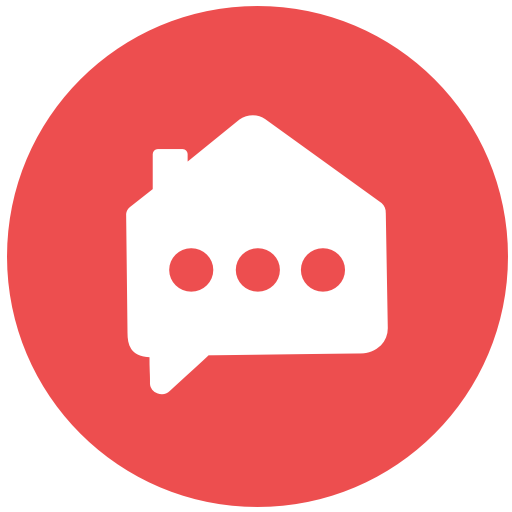 Aiva
Aiva
